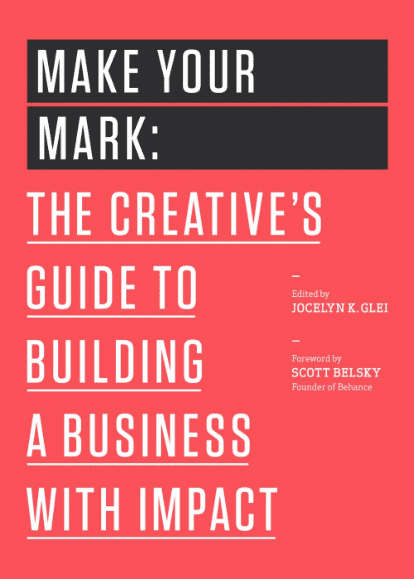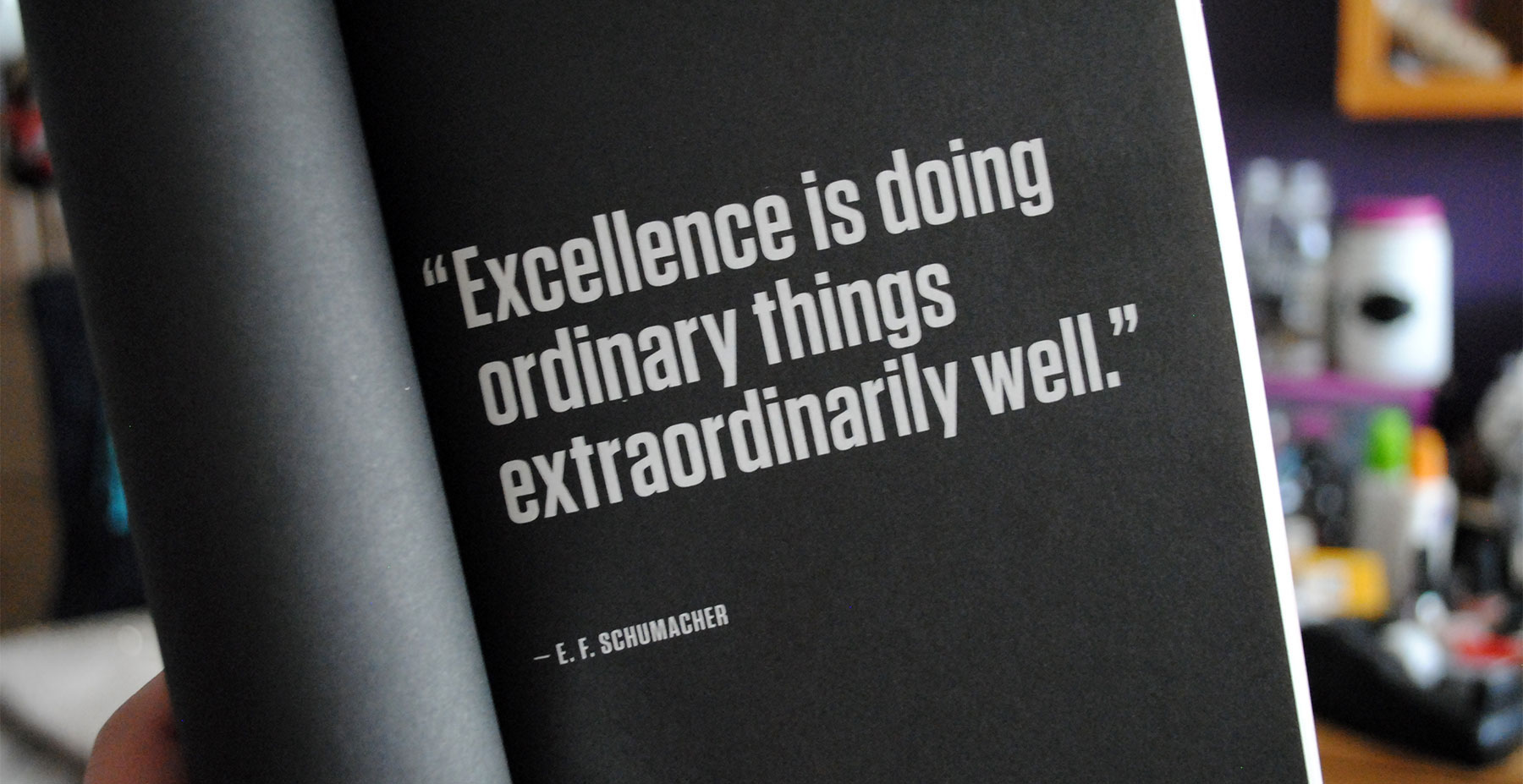
Make Your Mark is a collection of anecdotes and stories from the minds behind innovative startups like Google X, Facebook, Warby Parker and more. In the words of its author Jocelyn Glei, Editor-in-Chief of design blog 99U: this book is made for makers, not managers.
"Unlike traditional measures of success— like money, titles, or status—the creative mind is driven by a desire to see creativity come to life. Success is making an impact in what matters most to you. To make an impact with creativity, you must love what you do."
As a corollary to this observation, the best businesses are not profit-driven, but are those that strive to solve real problems and meet actual needs. They focus on creating value, and let everything else follow.
More than anything, this book will motivate you to create. It doesn't tell you what to do as much as it tells you why to do it. It's inspiring and provokes action.
Common Themes of Success
Each of the stories and contributors have different experiences and stories, but they piece together to form different facets of the same sort of creative triumph. The 21 essays that the book is made up of are like chapters, but since there isn't a linear narrative, it reads like a collection of short stories where mostly everyone win.
It could be considered as self-congratulatory to curate a collection of success stories, which makes this book sometimes feel like a self-help book. But considering the esteemed list of contributors like Seth Godin, Neil Blumenthal, Chris Guillebeau and more, the insight in here does come from true luminaries.

The print edition of Make Your Mark includes some bold design flourishes to emphasize key passages and contributors.
Favorite Passages
"The best businesses aren’t profit-driven or even product-driven; they’re purpose-driven. They strive to solve real problems, meet pressing needs, and change the world in ways big and small. They make a commitment to constantly learning and iterating and evolving to become better at executing their missions. They focus on creating value, and let everything else follow."
"What do Dropbox, Nest, Uber, and Airbnb all have in common? Each began as a two- or three-man start-up operation that has been transformed, in seven years or less, from a small idea into a serious business— with a multibillion-dollar valuation to boot. When you step back and look at lightning-fast growth trajectories like these, it’s clear that the rules of business have changed. Many of the classic tenets that have guided great companies for decades are now outmoded or irrelevant at best."
"When a start-up launches, there have to be at least some users who really need what it’s making— not just people who could see themselves using it one day, but who want it urgently. Usually this initial group of users is small, for the simple reason that if there were something that large numbers of people urgently needed and that could be built with the amount of effort a start-up usually puts into version one, it would probably already exist. Which means you have to compromise on one dimension: you can either build something a large number of people want a small amount, or something a small number of people want a large amount. Choose the latter. Not all ideas of that type are good start-up ideas, but nearly all good start-up ideas are of that type."
Conclusion
Although this book is 260 pages, it's broken into twenty one distinct stories told by different entrepreneurs and goes by quickly. Unlike Zero to One, this is essentially light, fun reading that will not tax you too much. At times, it does do a lot of back-patting, but it is inspiring nonetheless.
If you decide to purchase this book you might consider the paperback version which costs only $3 more than a Kindle copy, and is beautifully designed and printed.
Rating:


